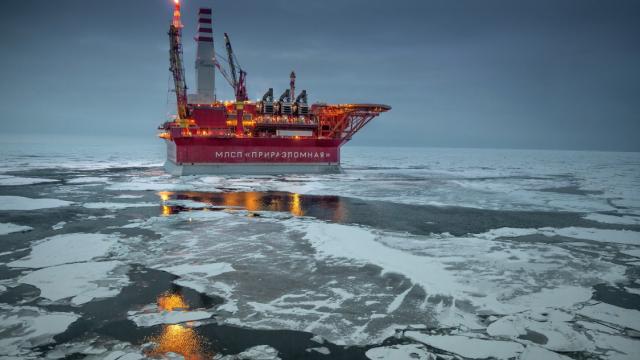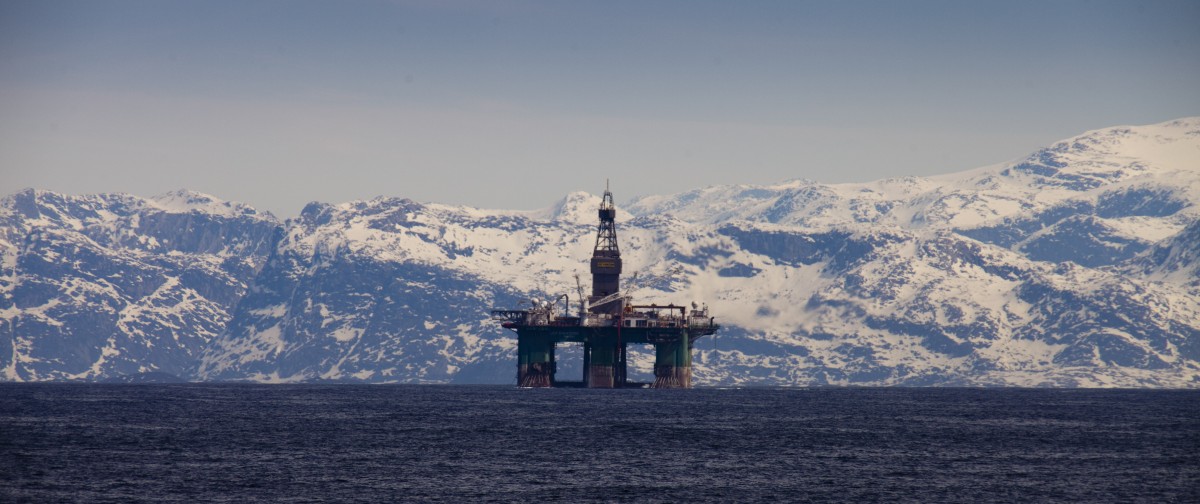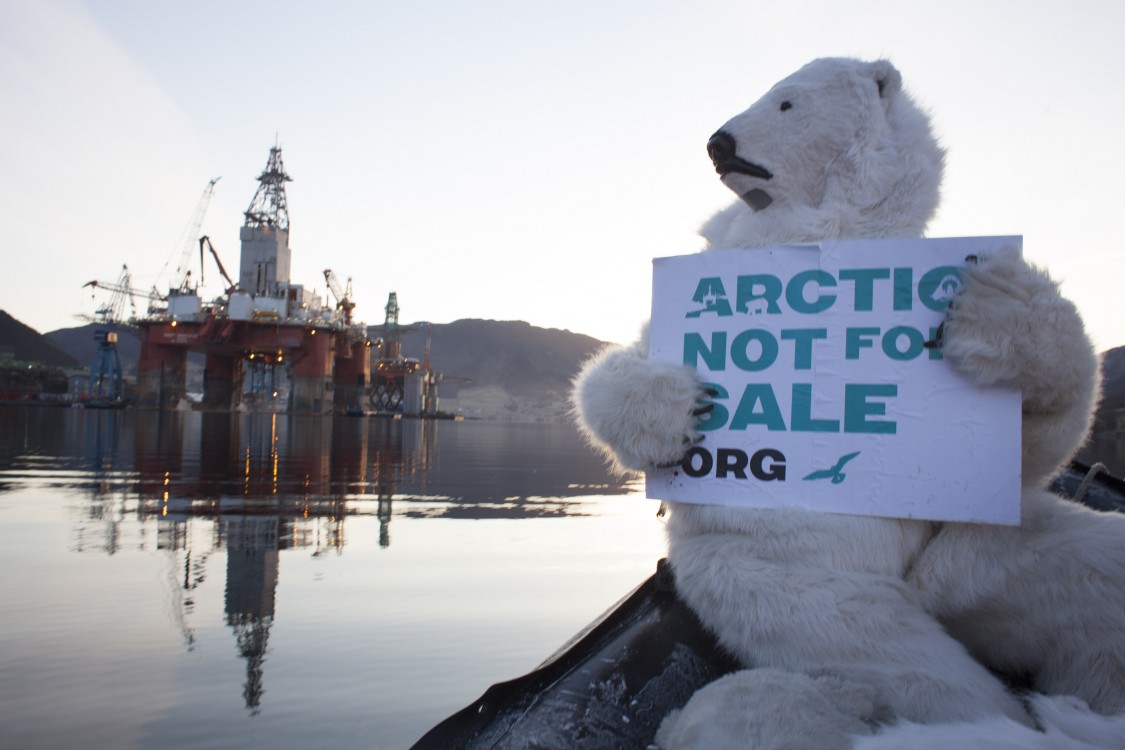
“The glacier near the hospital where I work gets smaller and smaller every year. You can walk where it once was. The ground is black, like a lunar landscape where no one has been for between 12,000 and 15,000 years,” Annie Henriksen, from Hammerfest, explains to us.
Henriksen is a midwife as well as vice president of Friends of the Earth in Finnmark, the most northerly province of Norway. An indigenous Sami, she has lived her entire life in the northernmost town of the world.
We met Henriksen in Hammerfest (Hámmárfeasta, in Northern Sami), the proposed central hub for Arctic drilling. Unlike Alaska's Arctic, where plans to drill for oil were abandoned in 2014, Norway and its eastern neighbour Russia are pushing ahead with Arctic drilling. This year, U.S. President Donald Trump offered his support to follow suit in Alaska.
Norway, which started drilling for oil in 2013 in the Barents Sea, has recently opened up 93 blocks for exploration licences in the area between Hámmárfeasta, the Svalbard archipelago and Arctic Russia. During our trip to the region, we have travelled from London oversea and overland, without flying. Now, only Arctic sea lies between us and the North Pole, which is nearer than home in Britain.
But it is early August and the Arctic environment is not as harsh as we expected it to be. On the Finnish side of Sápmi, the area where the Sami live, we have been struck by a heatwave that brought temperatures to over +25C (77F). Even on the northern Norwegian coast, where the Gulf Stream usually keeps the temperature steady between -5C (23F) and 11C (52F), it is now in the high teens (around 65F).
On Top of a Melting World
Although the warm weather is exceptional, exceptions have become the new normal. The Arctic region is warming at a faster rate than the rest of the world; in some places its average temperature has already risen by 2C.
We asked Professor Joanna Haigh, a leading expert on climate change and co-director of the Grantham Institute – Climate Change and the Environment, to point us to the leading scientific evidence on Arctic warming. Haigh highlighted a report by the Intergovernmental Panel on Climate Change, entitled Climate Change 2013: The Physical Basis, which asserts with robust evidence that Arctic sea ice has melted at unprecedented rates, particularly since 1979. If climate change is not dealt with, experts say the Arctic is expected to warm far more than global average rises.
The Arctic region of Norway, Sweden, Finland and Russia is also home to Europe's only indigenous population, the Sami, many of whom still rely on traditional livelihoods such as reindeer herding, hunting and fishing. Changes in ice patterns are affecting the routes reindeer herders can take their herds. Irregularly melting snow and additional rainfall that freezes is stopping the animals from accessing lichen, which is their primary nutrition.
Warmer weather also makes the region more accessible for further colonisation, which is already shown by the rush toward Arctic oil.
Henriksen, who is in her 60s, tells us how the seasons have been changing. Winter starts later, rain comes at times that formerly only had snow. Climate change also means animals that never came as far north can now be seen; for instance, fishermen these days catch mackerel.
Another impact of climate change is the ferocity of the storms, something obvious from a global perspective, but not often discussed in the context of the Arctic. Henriksen's home is built on a small hill overlooking Hámmárfeasta. She worries that the intensifying storms now threaten the wooden house. The town sits on a mountainous island, and small stones lay on the slopes.
“We now have stone-storms, [where] the wind is so strong it throws up stones that damage cars. That never used to happen,” she reflects.
Local Pollution
But climate change and oil drilling aren't the only threats to the island of Sállir (Kvaløya in Norwegian), which already has extensive liquid petroleum gas production. The impact of the oil and gas industry scars the island: a deep smog sits over Hámmárfeasta, processing plants and tankers litter the stunning landscape, and heavy traffic swarms on the narrow roads.
Henriksen tells us that when she goes skiing in the hills, grey soot carpets the white snow. Air quality in Hámmárfeasta is worse than in Oslo, Norway's capital. After nearly 20 years of an intensive gas industry, pollutants from the toxic chemicals are accumulating.
“In the past, if I caught a 2-kilogram fish I was so happy, but now I just throw it away,” says Henriksen, whose midwife practice draws on Sami knowledge of medicine and pain relief techniques. Sami people have lived in harmony with nature for thousand of years. For them, reindeer herding, fishing, berry collecting and other seasonal livelihoods provide nourishment today, as they have done for millennia.
But now, due to pollution, Henriksen no longer advises expectant mothers to eat the local plants, fish, eggs and berries. Once natural rich sources of vitamins and minerals, they can now be toxic and dangerous to both mother and baby. “If a mother is overweight during pregnancy, I even tell her not to lose weight to protect the baby from toxins stored in the fat.”
This highlights a core problem with pollution in the Arctic, where the ecosystem is fragile and extremely vulnerable. Vegetation grows back slowly because summers are short. Species are few and food chains are limited. Animals rely on fat reserves for the long winter, so humans and other large predators accumulate high levels of toxic chemicals in their fat.
If there was an oil spill in the Arctic, consequences would be even more disastrous than elsewhere, as the cold and remote seas would hinder clean-up efforts. In fact, fossil fuel production here cannot by definition be made safe, as we will examine in the second part of this series appearing next week.
Continue reading PART 1 | PART 2 | PART 3
3 WAYS TO SHOW YOUR SUPPORT
- Log in to post comments















